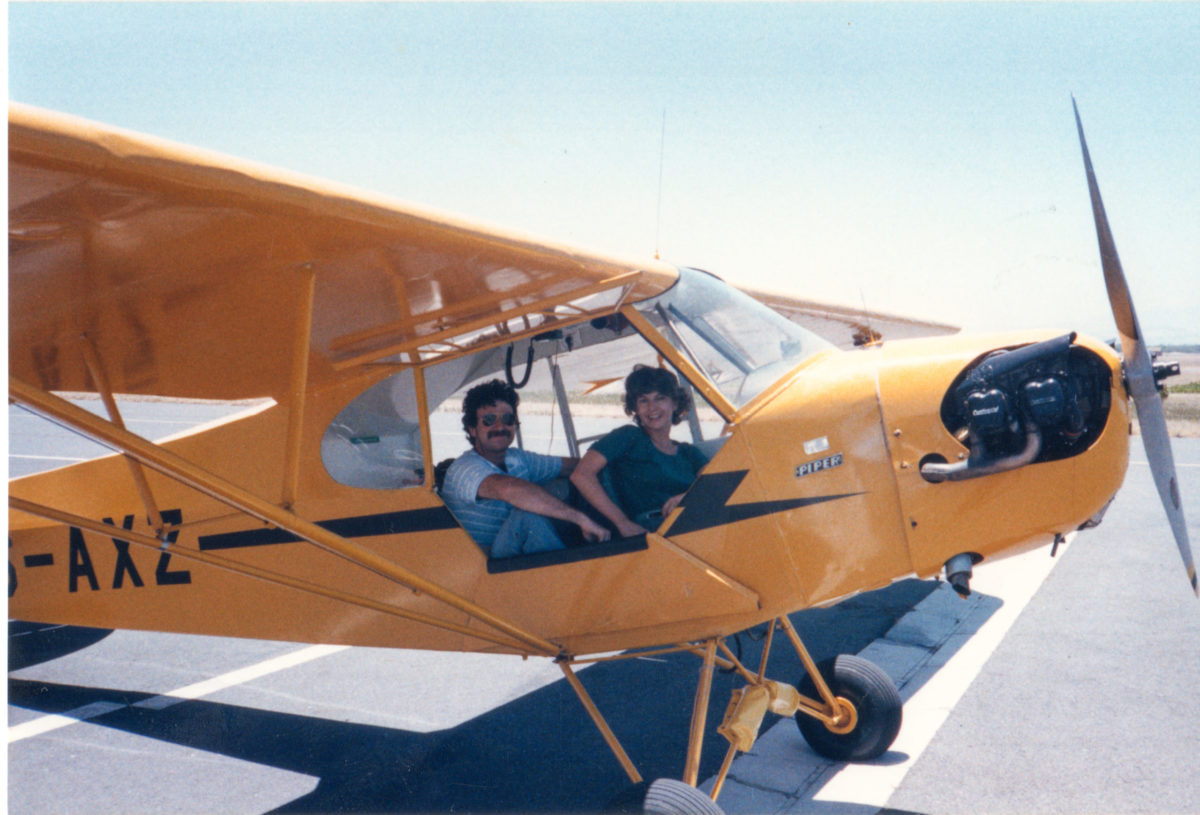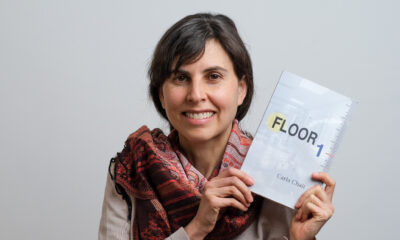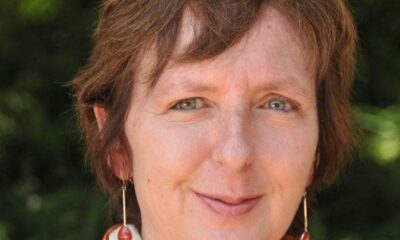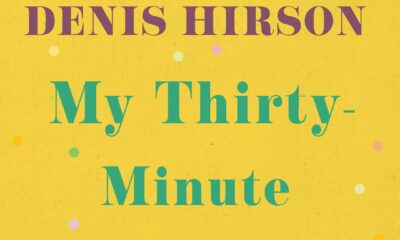
Featured Item

From the cockpit – secrets of a Jewish pilot
Veteran South African pilot Robert Schapiro wrote Secrets from the Cockpit before he died. His wife, journalist Arlene Getz, talks to Mirah Langer about it.
How did the book come into being?
It evolved from Robert’s decision to write about his life for our son, Morgan. As Robert wrote in his introduction, Morgan loved his stories, and always said he should write them down.
Robert finished the manuscript after he was diagnosed with mesothelioma, a rare asbestos-related cancer that affects the lining of the lung, and I promised him I’d edit it and get it published.
The two of you attended Herzlia. What are some of your earliest memories of him and his determination to break the mould of expected careers for “nice Jewish boys” at the time?
Robert and I met when we were in a school play in primary school. Even back then, flying was all he talked about. I remember clearly how so many people either made fun of him for it or just felt sorry for him because flying school was so competitive.
For me, Robert’s memoir is relevant on many levels. Yes, it’s about a young man who fought the odds to live his dream. But it’s more than just the story of one person’s life. It’s also a snapshot of an era in the evolution of aviation and in the history of South Africa.
In order to fulfil Robert’s dream of becoming a pilot, he had to enter the apartheid-era South African Air Force and was even involved in the border war. Yet, he was clearly ideologically against the state. How did he navigate this?
Remember this was the 1970s, when all the young men of my generation were conscripted for national service, and many of them did get deployed to the border. What was different was that his passion for flying made him agree to join the Permanent Force because it was the only way he could get the pilot training he needed to get into South African Airways (SAA).
He was subject to rampant antisemitism. How did he cope?
Robert sums up the antisemitism right at the start of the book, when he wrote, “Not a day – sometimes not an hour – of my years in the South African military went by without one of my Afrikaner barrack mates calling me Jood [Jew]. They weren’t saying it to be nice.”
He said that it wasn’t unusual for the Jewish recruits to be pulled out of the ranks to do unpleasant menial jobs. In Robert’s case, it must have been worse because he would have been the lone Jew.
Sometimes he’d have to talk his way out of things, like the time when his barracks mates asked him to speak “Jewish”. He started telling them in Hebrew how little he thought of them, and realised when he saw their shocked faces that he’d actually switched his insults into Afrikaans by mistake.
Most times, he said, he ignored it unless it became more than harmless name-calling. Then he either fought back hard or ran away and hid.
How did the two of you get married?
We started dating after we bumped into each other at a restaurant in Cape Town. He was already in SAA, and I’d recently graduated from Rhodes with my journalism degree. When we got married a few years later, one of his aunts told me how happy she was that we’d finally got together because as a child, he’d never stopped talking about me.
Robert offers a behind-the-scenes look at some of the behaviour and culture of SAA. What did he find the most startling?
Air crews could have as long as a one-week stopover in places like Lisbon, and it wasn’t unusual for some pilots to spend the time waiting for their return flight doing little else but visiting local bars. On Robert’s first international trip, the captain got so drunk one night, he ended up passing out on the floor of a local train.
Robert also disliked the autocratic captains known in the airline as the Royal Family. Many were World War II veterans who reigned over their cockpits, expected blind obedience, and thought the rules didn’t apply to them.
What did Robert’s Jewish identity mean to him?
He didn’t just see himself as a pilot, he saw himself as a Jewish pilot.
Tradition was important to him. He grew up in an Orthodox home, loved family Shabbat dinners, and had us all in stitches when he used to describe the weird sounds of meat being put into the mincer when his granny made pirogen.
He was an active member of our New York shul community, and impressively dedicated to teaching Morgan his Barmitzvah portion.
Which is your favourite anecdote in the book and why?
One story that is just so Robert is when he decided he needed a pet to keep him company during one of his training courses in Japan. Hotel rooms aren’t exactly conducive environments for that, but Robert decided that one of the small red crayfish he’d seen at the local fishmonger would be the answer.
He ended up having to buy three of the creatures because the fishmonger wouldn’t sell him less than 200g worth, brought them back to his room, agonised over what to feed them, wondered why they barely moved, and then hid under the sheets when they became energised enough to wake him up with the clacking of their claws in the middle of the night. He ended up keeping just one of the three, and of course, he named him Claw.
Tell us more about what he was like beyond the pages of the book.
Robert was, to use one of his favourite words, a mensch. He was kind and generous.
He was enormously talented. He made gorgeous wooden furniture, restored old houses, and was an excellent cook. He baked incredible bread. At the same time, he was genuinely modest.
He was very much his own person. When he wasn’t in his pilot’s uniform, he lived in torn T-shirts and baggy shorts covered in paint stains. He hated formal clothes, and thought he was very clever when he found sweatpants that were the same colour as the flying pants issued by Nippon Cargo Airlines (NCA). He used to change into those after take-off, and tell himself that no-one could tell the difference. NCA managers didn’t see it quite the same way.
He was a wonderful father. And I couldn’t have asked for better, or funnier, husband.
How does Morgan feel to see the book in print?
Robert always regretted that his flying meant he had to spend so much time away from us. Years ago, he wrote, illustrated, and self-published a series of children’s stories for Morgan. The first one was called, Where Does Daddy Go? and it showed Morgan what Robert did when he was on a flight. It ends with Robert telling Morgan how he misses him every day that he’s away.
Morgan loved those books and is thrilled about the memoir making it into print.











Bev Moss-Reilly
July 22, 2021 at 5:45 pm
What a beautiful heartfelt and touching story.
May his nashama forever fly high as he watches over his wife and Morgan.
He has certainly left a legacy of warm and loving memories.
MHDSRIP
Special thoughts to his family and a Long Life to all.
Zack
April 26, 2023 at 7:16 pm
The aforementioned pilot knocked into the rear of my Dad’s VW beetle in the late 70’s. Safe to say.. there was no retribution